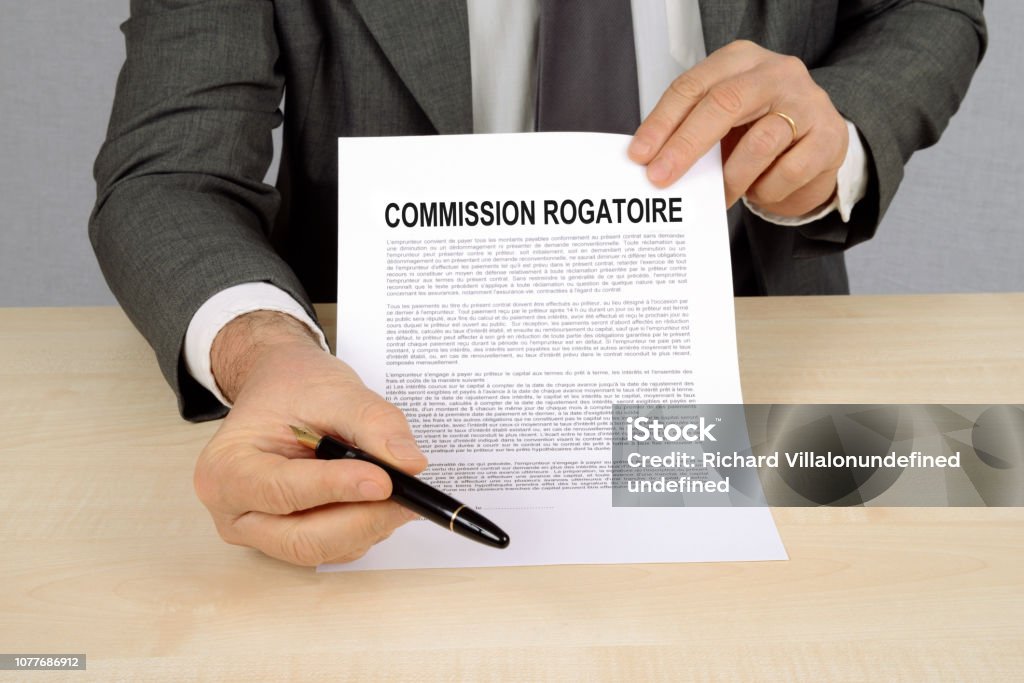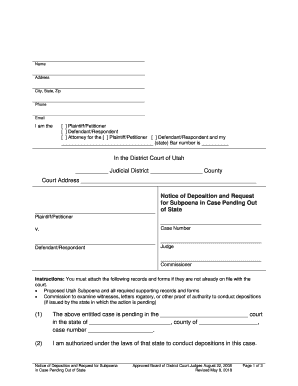Letters Rogatory Explained: Facilitating Legal Collaboration Between Countries

Definition of Letters Rogatory
Letters rogatory are formal requests made by a court in one territory to a court in one more territory, seeking help in acquiring evidence or testament for a legal action. This step-by-step mechanism is necessary in the context of worldwide law, where lawful systems may differ, and cross-border teamwork is required. Letters rogatory help with the celebration of details that might be important for settling cases, particularly in instances including intricate global issues.
Normally, these demands arise in civil, criminal, or administrative matters where a celebration calls for proof that is situated outside the territory of the requesting court. The letters serve as a way to make sure that the concepts of due process are promoted, making it possible for courts to access evidence that might otherwise remain inaccessible due to geographic or legal barriers.
Making use of letters rogatory is regulated by worldwide treaties, reciprocal contracts, or residential legislations, which mark the treatments and commitments of the courts entailed. It is vital to keep in mind that the implementation of such demands is not ensured; they depend upon the legislations and methods of the territory getting the letter. Therefore, letters rogatory are a crucial device for fostering lawful cooperation and guaranteeing justice across borders.
The Process of Issuing Letters Rogatory
Issuing letters rogatory includes a structured procedure that makes certain conformity with both international and residential legal criteria. The requesting celebration, typically a court or lawful authority, prepares an official request detailing the nature of the aid looked for, the evidence or info required, and the legal basis for the request. This file should be precise to promote understanding by the international jurisdiction.

The following step involves transmitting the letters rogatory to the designated foreign authority. This is commonly done with polite networks or global legal support structures, making certain that the request is received and acknowledged by the international court. The international court then refines the request according to its own lawful procedures, eventually replying to the asking for event with the desired information or proof, therefore assisting in global lawful cooperation.
Value in International Regulation
The relevance of letters rogatory in global regulation can not be overemphasized, as they function as an important system for judicial cooperation throughout borders. These official ask for help in legal matters enable courts in one jurisdiction to look for information, evidence, or the presence of witnesses from an additional territory, consequently assisting in the administration of justice in global instances.
Letters rogatory are especially vital in the context of globalization, where lawful conflicts usually extend multiple countries. They allow the collection of proof that might otherwise be unattainable, making sure that lawful procedures are informed and reasonable. By fostering cooperation between judicial systems, letters rogatory aid support the guideline of law and promote mutual respect amongst nations.
Furthermore, the usage of letters rogatory demonstrates a dedication to international norms and principles of collaboration, showing the interconnected nature of contemporary legal methods. It illustrates the relevance of adhering to recognized procedures and treaties, such as the Hague Convention, which gives a structure for these demands - Letters rogatory. Eventually, letters rogatory improve the efficiency of legal procedures, making certain that justice is not prevented by geographical boundaries
Obstacles and Limitations
In spite of their importance, letters rogatory face several difficulties and limitations that can hinder their performance. One main problem is the differing lawful frameworks and procedures across territories, which can lead to misconceptions and hold-ups in the execution of requests. Different countries may have distinctive needs for the credibility of letters rogatory, complicating the process even more.
In addition, the usually drawn-out nature of international legal teamwork can impede prompt accessibility to proof or witnesses. This delay might adversely influence lawful procedures or ongoing examinations, particularly in instances requiring urgent action. Additionally, the absence of resources and training in some territories can cause insufficient handling of requests, resulting in incomplete or inadequate feedbacks.
Cultural differences and varying attitudes in the direction of lawful processes can additionally present considerable obstacles. Countries with less formal legal systems may battle to comply with the procedural roughness expected in letters rogatory. Lastly, political stress between countries can affect the readiness to implement requests, causing a lack of cooperation and decreasing the utility of this mechanism in global law. These challenges require continuous dialogue and reform to improve the efficiency of letters rogatory in legal cooperation.
Case Research Studies and Examples

Conversely, challenges can emerge, as seen in a situation entailing a European country looking for proof in a recurring criminal issue from a non-EU country - Letters rogatory. The procedure was postponed because of administrative hurdles and varying lawful standards, inevitably impeding the examination
These instances show discover this that while letters rogatory can assist in international teamwork and expedite lawful procedures, they also highlight the requirement for clear communication and understanding of lawful frameworks in between countries. Such study emphasize the importance of refining this tool to useful content improve effectiveness and performance in worldwide legal issues.
Conclusion
In recap, letters rogatory work as an essential device for assisting in lawful teamwork between nations, making certain the collection of proof and testament across jurisdictions. Their value in worldwide law can not be overemphasized, as they advertise due process and enhance the performance of cross-border legal proceedings. However, difficulties such as differing legal frameworks and political stress may impede their efficiency. Continued efforts to improve and improve the procedure are essential for fostering stronger international judicial partnership.
Letters rogatory are formal requests made by a court in one territory to a court in another territory, seeking help in getting proof or testament for a lawful proceeding. The asking for event, normally a court or lawful authority, prepares a formal demand describing the nature of the aid looked for, the proof or info needed, and the legal basis for the request. The international court then refines the demand according to its own legal treatments, ultimately responding to the asking for event with the sought-after info or proof, therefore helping with global legal participation.
Furthermore, the usage go to this site of letters rogatory demonstrates a dedication to worldwide standards and concepts of teamwork, mirroring the interconnected nature of contemporary lawful practices.International legal participation with letters rogatory is not without its real-world ramifications, as illustrated by different situation researches that highlight both successes and challenges.
Comments on “Letters Rogatory vs. Mutual Legal Assistance Treaties: Trick Differences Discussed”